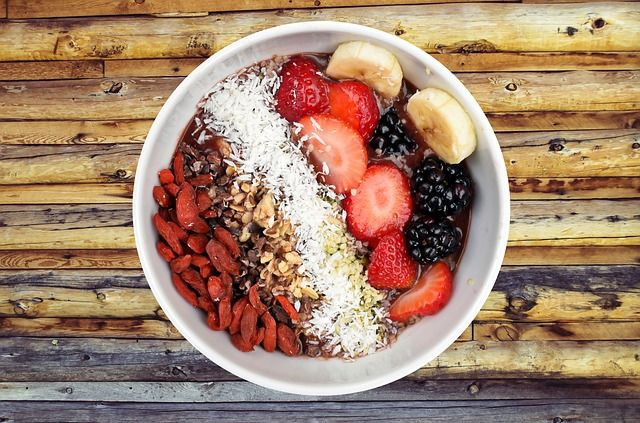Eat Fiber: Whole Grains Prevent Gut Microbes From Eating Intestine Lining, Increasing Infection Risk

We all know fiber is good for your digestive health, but a new study has revealed just how much gratitude we owe to roughage and whole grains. According to the research, fiber also works to help fight against intestinal infection, and without enough of it, the microbes in our gut will begin to consume our gut lining, essentially eating us alive from the inside out.
According to a study now published online in the journal Cell, fiber deprivation causes the gut microbes in mice to begin to eat the mucus lining of their gut. If this deprivation is allowed to continue for too long, it will cause a complete erosion of the gut and may allow invading bacteria to infect the colon wall. According to the researchers, this finding could have implications for possible uses of fiber against the effects of digestive tract disorders.
"The lesson we're learning from studying the interaction of fiber, gut microbes and the intestinal barrier system is that if you don't feed them, they can eat you," explained lead researcher Eric Martens in a recent statement.
For their research, the team transplanted 14 types of bacteria that normally grow in human guts into the intestines of lab mice. As a result, they were able to see the full extent of specific diets on the mice’s gut lining. In doing so, they observed that fiber-less diets were extremely detrimental to the mice’s intestinal health, eating away at the gut lining and allowing for dangerous bacterial infections. What’s more, the same effect was also seen in mice that received a diet rich in prebiotic fiber, a purified form of soluble fiber that is similar to what is found in processed food and supplements.
Martens explained that, although the research was conducted on mice, “the take-home message from this work for humans amplifies everything that doctors and nutritionists have been telling us for decades: Eat a lot of fiber from diverse natural sources."
You don’t have to down bottles of prune juice in order to ensure you are meeting your fiber quota; there are plenty of easy and arguably more pleasant ways to increase your fiber intake. For example, according to WebMD, switching to whole grain versions of bread, rice, and pasta can be a useful diet tool. In addition, snacking on fruit throughout the day can go a long way, as one banana or a single pear can have up to 4 grams of fiber (that's the same as one cup of cooked brown rice).
It's important to add diversity to your fiber intake. For example, fiber comes from a variety of food, such as fruit and veggies, as well as cereal, bread, and even yogurt.
"We can't expect all fibers to have the same functions, just like we don't expect all vitamins to have the same functions," explained Dr. Julie Miller Jones, professor emeritus at St. Catherine University who recently conducted research on American fiber intake.
Mixing different types of naturally occurring fibers will ensure that they work together and be as beneficial as possible.
Source: Desai MS, Seekatz AM, Koropatkin NM, et al. A Dietary Fiber-Deprived Gut Microbiota Degrades the Colonic Mucus Barrier and Enhances Pathogen Susceptibility. Cell . 2016
Read More:
Eat Your Veggies: Eating Different Types of Fiber Is One Of The Best Things You Can Do For Your Health: Read Here
The Health Benefits Of Fiber Include Depression, Dementia, And Hypertension Prevention: Read Here
Published by Medicaldaily.com



























